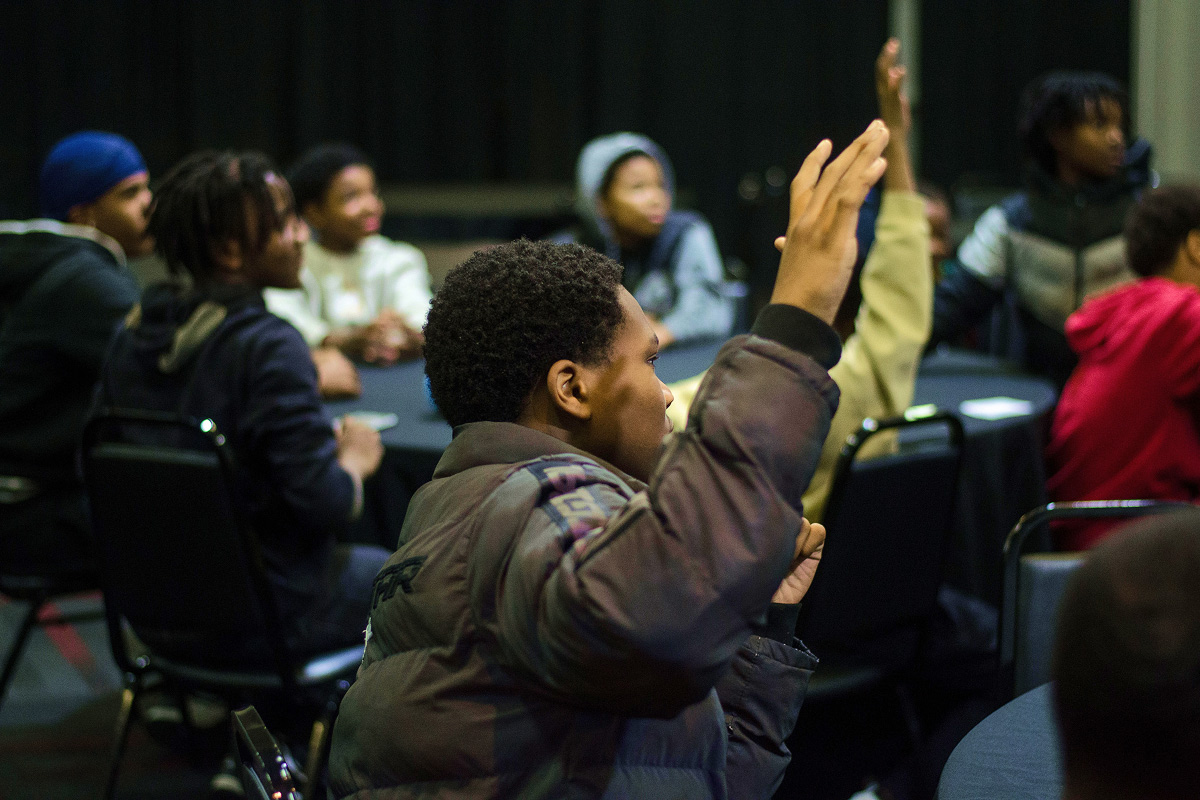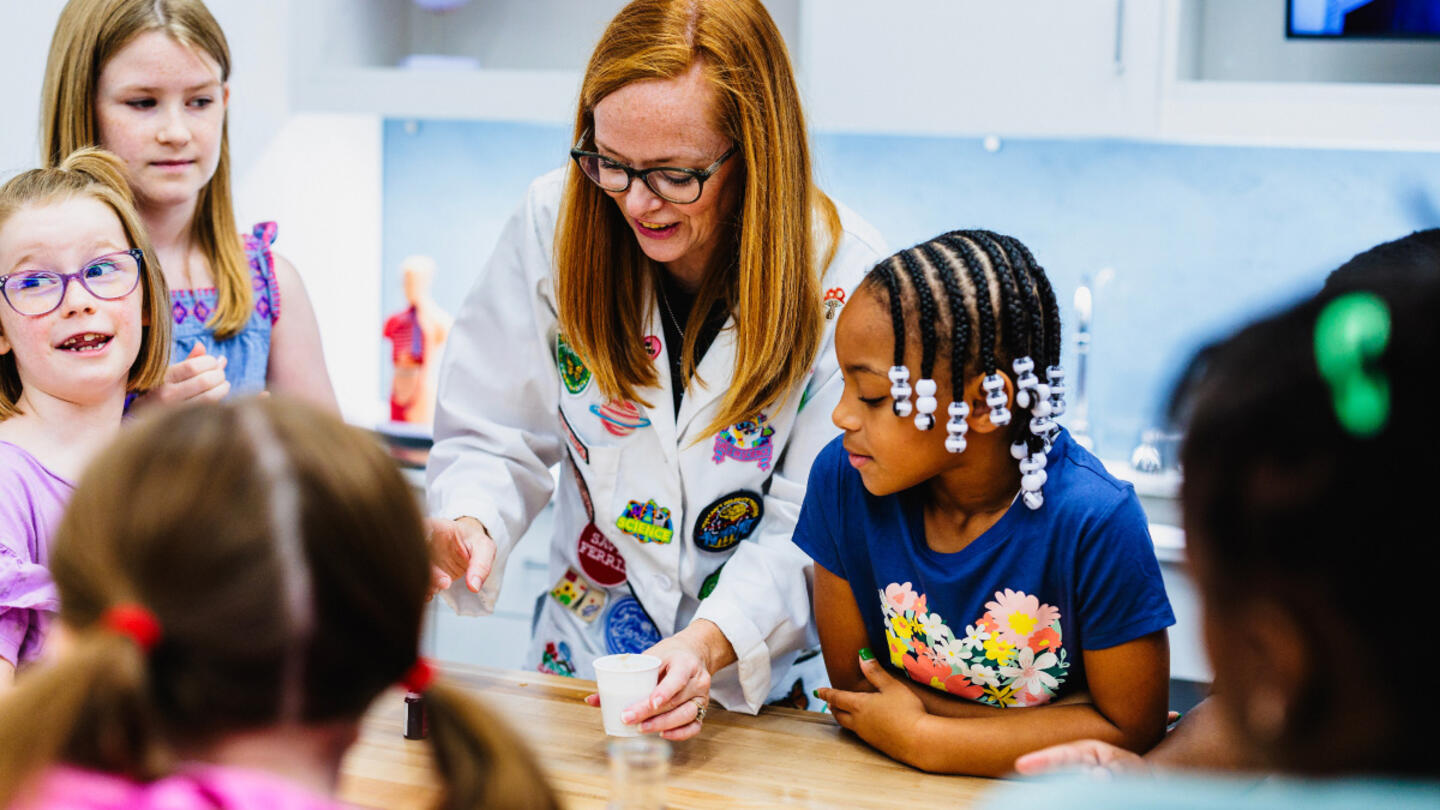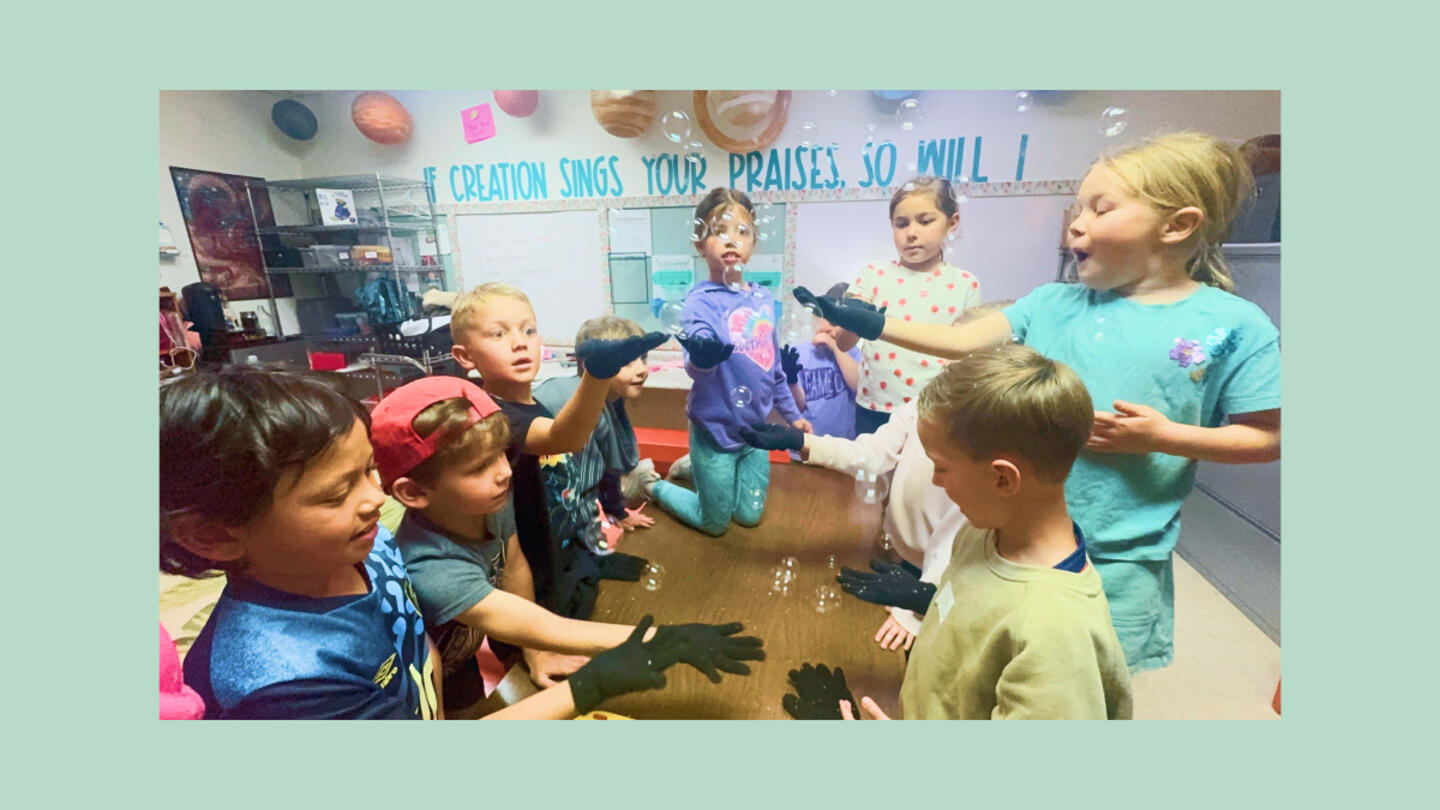While her son idolizes legends like LeBron James, Michael Jackson, and Berry Gordy, Tierra Turner has come to appreciate the role models closer to home.
At 16, Jermaine is growing up with his mother and sisters in Akron, Ohio, where the absence of a positive male role model at home can make life feel overwhelming. His mother is determined to support him, but she understands she can’t do it alone. She refers to the men who stepped in to guide Jermaine as “pillars.”
“If it takes a village to raise a child, I need pillars in my village,” Turner said. “I can’t do it all by myself. I don’t want him to grow up without strong male connections in his life.”
One of those pillars is Brandon R. Scarborough, a familiar face from church who first bonded with Jermaine over a shared love of music. But when Turner learned Scarborough had founded Dreams Academy — a nonprofit dedicated to mentoring young boys facing challenges like fatherlessness, violence, and poverty — she realized he could be a life-changing influence on her son.
“We work with a lot of mothers looking for help in raising their sons,” Scarborough said. “We can’t be the parent, but we can absolutely be an addition.”
Dreams Academy provides eight-week mentorship sessions where boys meet weekly with mentors who offer guidance, structure, and support. This August, Scarborough is expanding the program by launching an all-boys school under the same name, starting at the elementary level with plans to grow into a middle school.
His goal is simple: to reach boys early, not just to correct bad habits but to instill positive ones, modeling the mindset, speech, and behavior of successful Black men.

In the three years Jermaine has attended Dreams Academy, his mother has watched her son’s growing self-confidence and optimism about the future. As Scarborough prepares to launch the school, he hopes to build on that success — proving that with the right support, these young men can thrive.
What exactly does success look like?
Scarborough seeks mentors at Dreams Academy who have had life experiences similar to those of the boys they will work with.
“We look for individuals who have a story to share that offers insight into what adulting really looks like,” Scarborough explained. “What do challenges look like? What does pain feel like? And how do you rise above those circumstances?”
Take, for example, a recent mentor who spoke with the boys. He shared that he would soon be transitioning out of his role as a parole officer so he could attend the police academy, a major step toward his dream of becoming a police officer. But his story wasn’t just about career milestones — it was about his personal journey.
He spoke of growing up without his father and the difficult, emotional work of mending that relationship as an adult. His message encompassed resilience and healing, highlighting the payoff of confronting the challenges that life throws your way.
At Dreams Academy, the goal is to connect the boys with individuals who have not only excelled in their careers but who can also provide valuable insights into personal growth and the emotional challenges that shape us.
“A lot of times, we hear the phrase ‘a product of my environment,’ and it usually has a negative connotation,” said Scarborough. “We want these boys to know that regardless of where they come from, they still can be excellent.”
‘I’m learning how to be a man’
When Turner asks Jermaine what he’s learning at Dreams Academy, his response is simple and profound: “I’m learning how to be a man, Mom.”
At Dreams Academy, the goal is to provide young men with the role models they need to understand what success looks like within their own community. The nonprofit emphasizes that true leadership and excellence are not defined by skills or accolades alone but by character, integrity, and respect.
The program weaves everyday behaviors — like making eye contact during conversations, offering a firm handshake, and standing tall — into its training, helping the young men carry themselves with confidence and dignity. Mentors consistently remind them that success is measured not just by what you accomplish but by how you conduct yourself.
Sign up for Stand Together's K-12 newsletter and get stories, ideas, and advice from changemakers who are transforming education across the country.
As Scarborough puts it, “You know how you treat others. So, even in our groups, how are you treating the person next to you? How are you talking to them? How are you showing respect?”
While mothers teach similar values, these lessons often resonate more deeply when reinforced by a male role model who exemplifies the behaviors in his own life. When a mentor who shares their background and experiences teaches the young men how to present themselves, whether by pulling up their pants or speaking with clarity, the lessons carry greater weight.
Turner is often surprised by Jermaine’s growth. “Did he just say ‘yes, ma’am’ and ‘thank you’?” she said, laughing. “It’s the little things that draw you to him, even in a room full of people. Those small signs of respect make a real difference.”

Beyond the classroom, Dreams Academy exposes the boys to real-world examples.
“We try to take them places where they can see others operating in excellence — whether through entrepreneurship, business ownership, or even meeting the mayor, who answers their questions about the city,” said Scarborough. “We stay connected with various entities so that we’re not just telling them or filling them with information. We’re showing them good examples of what excellence looks like in our city, people that are local and right here, surrounding them.”
Why is it an all-boys program?
Of course, boys aren’t the only ones in need of mentoring. Scarborough’s organization also runs Queens Academy, a similar program for girls ages 12 and up.
So, why not just combine the two programs?
“It gives them the space to talk,” said Turner. “My son might think he’s going through the worst thing ever, but then three boys right beside him are going through the same thing. None of them would have said anything in front of a girl.”
That ability to open up is crucial. Turner has Scarborough on speed dial and knows she can reach out to him or any of the other mentors whenever she needs help. She understands that there are times in a boy’s life when he needs to speak with a trusted adult male, not just his mother.
She’s not the only one who feels this way. Scarborough and the other mentors keep their lines open to parents — primarily mothers — who need extra support with their sons.
“Sometimes, parents reach out and say, ‘Hey, my son is struggling here. Can you make sure to have a conversation with him?’” said Scarborough. “Parents trust us. We dig deeper, explore why certain behaviors are happening, and figure out how we can help.”
What does ‘give me 8 hours’ mean?
Scarborough has long envisioned expanding Dreams Academy into a full school dedicated to African American boys, starting at the elementary level.
“We get 90 minutes a week with these kids,” he explained. “That’s not a lot of time, and they go right back into their homes and other environments where sometimes the most positive things may not be happening. We try to make the most of that short time we have to create lasting change.”
But what if he had more time with them?
This question has led Scarborough to take his next major step: a school, set to open in August. One of the school’s taglines embodies Scarborough’s mission: “Give me eight hours.”
“You give me eight hours with a young man, I can change his life,” Scarborough said.
It highlights his conviction that consistent, focused mentorship can create lasting change in a young person’s life. It’s why he is so passionate about opening a school — to have more time to build relationships and cultivate positive traits in students.
The new school will focus on developing leadership, character, and good habits — foundational elements for long-term success. Scarborough emphasized that starting with kindergarteners was a deliberate choice. His goal is to instill values, dignity, and respect for others before negative habits have a chance to take root.
“We’re molding and instilling values so that by the time they’re 10, 12, or 16, they won’t need as much mentorship,” he said. “I want to start that young — creating leaders with leadership qualities and potential as early as 4 or 5 years old.”
The idea is that, as the boys age, they can help the younger boys with the behavior they have already learned.
The school’s flexible curriculum includes a music studio to encourage creativity, mental health support to nurture emotional well-being, and lessons on etiquette and responsibility to instill a sense of personal dignity. Scarborough wants to create an environment where young men are prepared for life.
That’s his North Star: “I look forward to the day when I see a kid walking across the graduation stage, and he says, ‘I am who I am because of Dreams Academy.’”
Dreams Academy is supported by Stand Together Trust, which provides funding and strategic capabilities to innovators, scholars, and social entrepreneurs to develop new and better ways to tackle America’s biggest problems.
Learn more about Stand Together’s education efforts and explore ways you can partner with us.

This colearning space has the potential to bridge the divide between public and private education.

New Johns Hopkins data shows homeschooling’s recent surge has transformed the education landscape.
Step 1: Find the best learning environment for your child. Step 2? Figure out how to pay for it.

Here’s what happens when AI replaces teachers.
